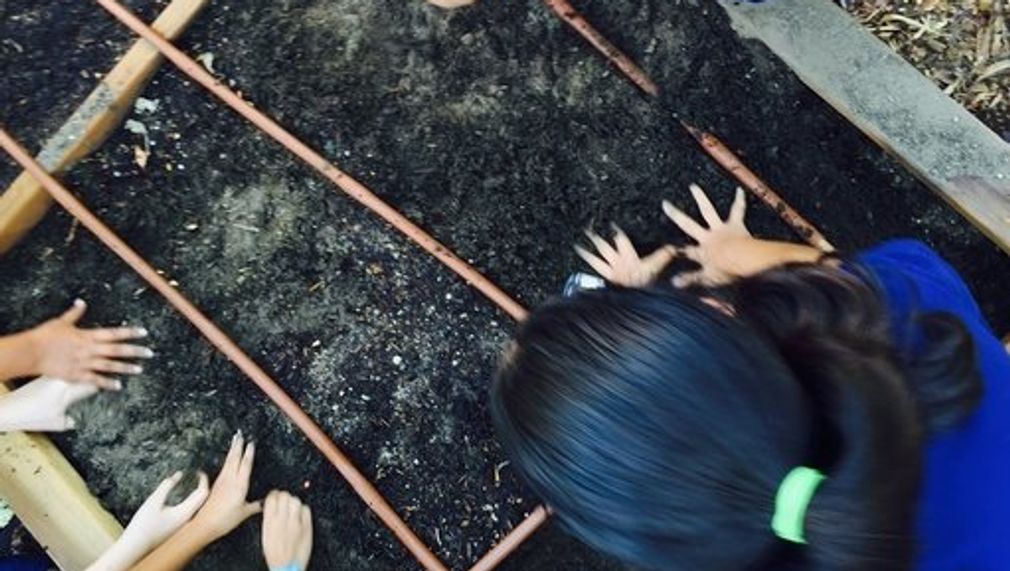Learning Through Service at Holy Family School
HFS hopes to transform the way education integrates learning through service by transforming our service-learning initiative into a model program and catalyst for change. Through programming, research and evaluation we hope to develop an innovative and replicable service-learning curriculum characterized by meaningful partnerships, reflection and enriched instructional strategies. We believe that we learn from the people we serve and that curriculum is enriched through community connections.

In what areas of Los Angeles will you be directly working?
San Gabriel Valley
How do you plan to use these resources to make change?
Conduct research
Engage residents and stakeholders
Implement a pilot or new project
Expand a pilot or a program
Mobilize for systems change
How will your proposal improve the following LEARN metrics?
Academic Performance Index* scores
Student education pipeline (an integrated network of pre-schools, K-12 institutions, and higher education systems that prepares students for seamless transitions between high school, higher ed
Suspension and expulsion rates (Dream Metric)
Truancy rates in elementary and middle schools (Dream Metric)
Students perceived sense of safety at and on the way to school (Dream Metric)
Describe in greater detail how you will make LA the best place to LEARN.
HFS will implement a model service-learning program that transforms the way students LEARN through a strong link between community impact and a strengthened curriculum. Our educational philosophy has long aspired to weave a greater level of service based learning into every aspect of our curriculum. Our students are actively engaged in community and ministerial work through their volunteering efforts with our Holy Family Giving Bank, Ministry to the Elderly and Project Haiti. Moderate adjustments to our existing curriculum would enable HFS to broaden its scope to become a true model in service-learning that helps make LA the best place to LEARN.
A recent study, by the National Center for Learning and Citizenship, supports the view that “high quality service-learning has a statistically significant and positive relationship with students’ acquisition of 21st century skills.” Local, national & global community outreach efforts positively impact our community, teach civic responsibility and motivate students to LEARN. Through service-learning, students LEARN that they can make a difference and be active citizens. Through active LEARNING they discover that they have a voice and how to use it.
Our service-learning model will integrate the community through authentic lessons in all subject areas. Many subjects will be tied to a garden-based curriculum delivered through the process of growing and harvesting produce for our local Giving Bank’s weekly food distribution and local restaurants supplying our school lunch program. Outdoor education will be expanded to cover environmental topics and relate them to our immediate community through the development of a large scale recycling program and a neighborhood improvement fund. Media literacy will be incorporated, in the forms of student broadcasting and public service announcements, to teach student the importance of analyzing and critiquing the local and global topics in which they will be immersed.
Our service-learning model will immediately impact the over 550 school and religious education students we serve. This includes students from preschool through high school citywide, creating an integrated network of support. Sharing our strategies will enable our program to reach far beyond our immediate campus to the many schools we partner with. Additionally, we will make our new curriculum design available to students of all socioeconomic backgrounds through a community summer program with scholarships.
Please explain how you will evaluate your work.
The successful implementation of a service-learning model program will require systems for reporting, collecting and analyzing data. The Principal and Guiding Coalition will document and analyze the growth of this program through the following methods:
1. Individual student portfolios. The student portfolios will consist of written evaluations and work samples from all subject areas displaying how service-learning enhances lessons. These portfolios will be assessed by the Guiding Coalition quarterly.
2. Faculty assessment & collaboration. Quarterly classroom observations and written evaluations will be completed for each individual teacher by the Guiding Coalition. This will also serve as an opportunity for teachers to build a shared knowledge of service-learning goals & strategies.
3. Overall program. A system will be developed by the Guiding Coalition for collecting data and organizing the service-learning curriculum into a comprehensive manual to be shared with other schools.
How can the LA2050 community and other stakeholders help your proposal succeed
Money (financial capital)
Publicity/awareness (social capital)
Infrastructure (building/space/vehicles, etc.)
Education/training
Technical infrastructure (computers, etc.)
Community outreach
Network/relationship support